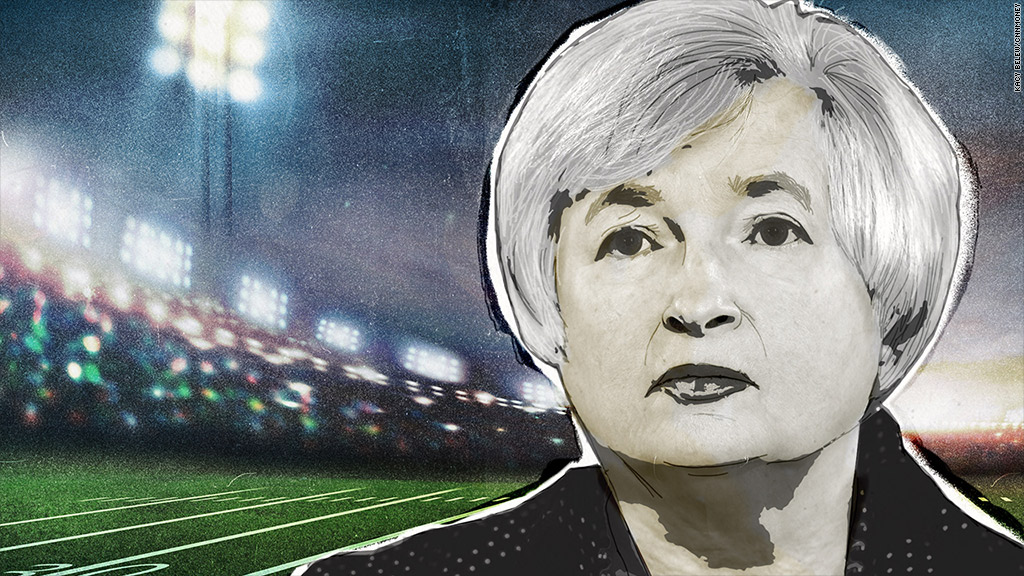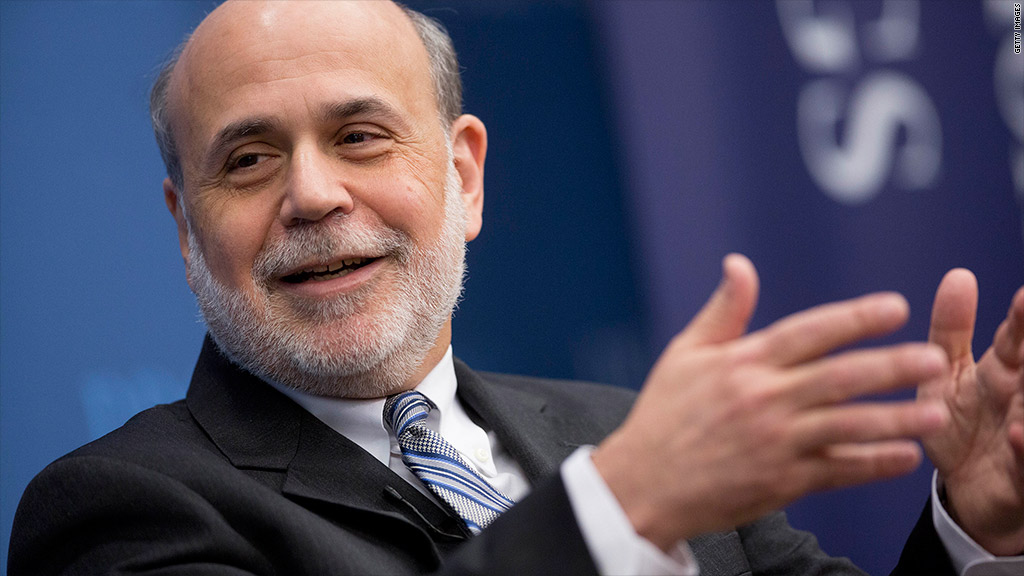
Forget Football; the most watched event this week for the markets concerns the Federal Reserve.
America's central bank wraps up its two day meeting on Wednesday and will subsequently outline its latest monetary policy.
Investors' key focus: interest rates, interest rates, interest rates.
The Fed has been holding down the federal funds rate near zero since the financial crisis, but a strengthening economy has lead to speculation that it will raise rates sooner than later. Most analysts predict the first rate hike will occur next summer.
In a worst case scenario, the Fed would raise rates too quickly, and the move would derail the stock market rally and the U.S. economy.
Related: 2008: Worse than the Great Depression?
Keep an eye on the Fed's policy statement Wednesday. The precise wording matters. In previous statements, the Fed has said it intends to keep rates low for a "considerable time" until the job market improves and as long as inflation remains in check. If the Fed removes those two words, analysts say the markets could sell off as investors brace for a jump in rates.
"Dropping 'considerable time' would be a major hawkish step," wrote Citigroup (C) strategist Steven Englander, in a research note Friday.
Fed chief Janet Yellen will hold a press conference Wednesday after the Fed releases its statement, and most economists believe she will do her best to reassure investors that the Fed plans to keep supporting the economy as long as necessary.
Yet Jeff Weniger of BMO Asset Management thinks that even if the Fed hints at an early rate hike, the market reaction would be minimal since it would mean the Fed thinks the economy is healthy enough to stand on its own.
Related: America has 4.7 million job openings
But regardless of what happens with interest rates, the Fed is expected to end its historic stimulus program.
It's widely predicted that the Fed will announce plans to stop buying bonds and mortgage-backed securities after next month. That program, known as quantitative easing, is largely credited with driving the bull market of the last five years.
Related: Most loved and hated stocks right now
The Fed has been winding down the program in monthly increments of $10 billion since the end of last year, when it was purchasing $85 billion in bonds per month. At its June meeting, the Fed indicated that if the economic recovery continues as it expects, the plan is to have one final $15 billion purchase in October and then none in November.
But the anticipated conclusion of the Fed's asset purchases comes as the European Central Bank is kicking off its own version of stimulus in an effort to juice a stagnating Eurozone economy. The ECB, lead by President Mario Draghi, is especially concerned that falling prices and the prospect of deflation could tip the continent back into a recession.

Weniger believes the ECB's attempts to prop up the European economy will also aid the U.S. stock market.
"It's like you know your girlfriend is going to dump you in October, but you know there's going to be another girlfriend coming along in November, and her name is Mario Draghi," he quipped.


